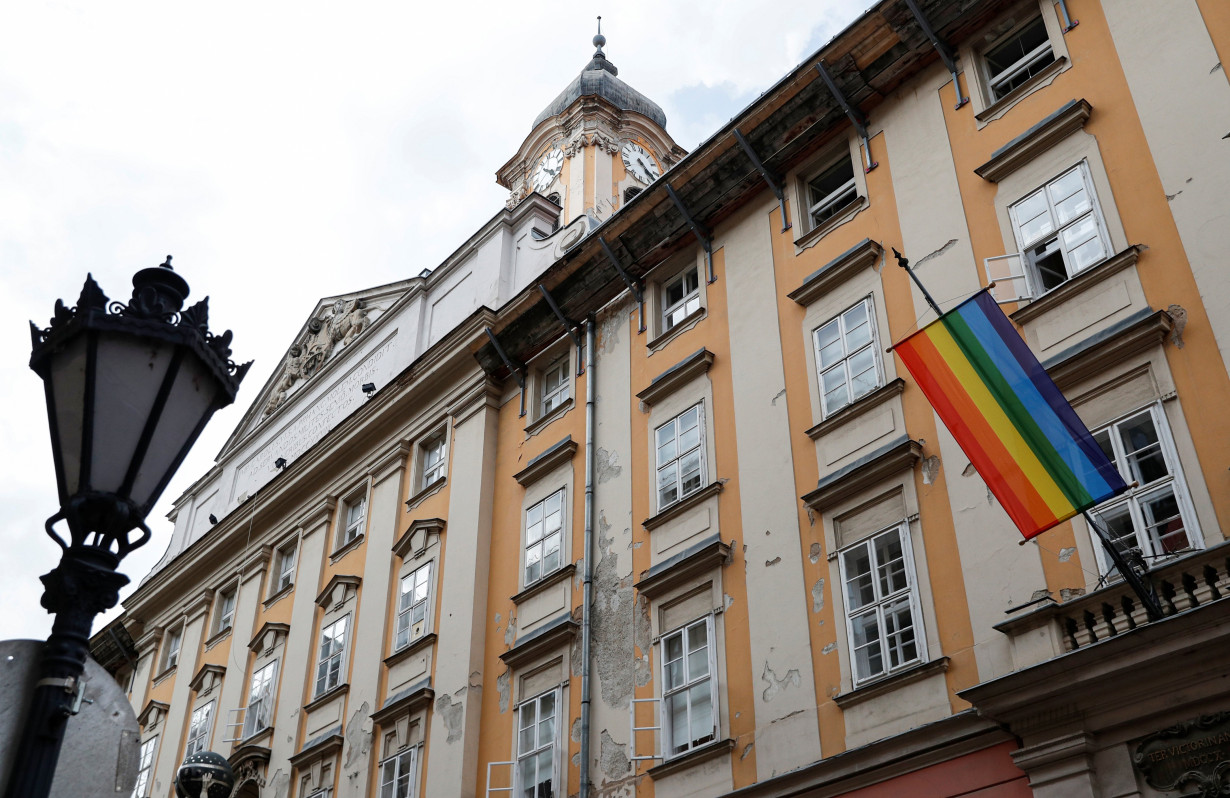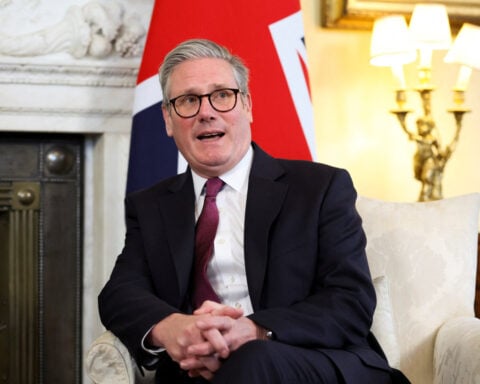BUDAPEST (Reuters) -A group of embassies in Budapest, including European powers but not the United States, have expressed their concern in a joint statement over a law passed by Hungary's ruling party that bans the Pride march by the LGBTQ+ community.
Hungary's parliament passed a law proposed by ruling Fidesz party lawmakers last week to ban the Pride march on the grounds that it could be harmful to children. Critics say the law effectively restricts the freedom of assembly. The legislation has triggered protests.
The statement issued by 22 embassies including France, Germany and the United Kingdom, said: "We, the undersigned Embassies, are deeply concerned about the legislation...that results in restrictions on the right of peaceful assembly and the freedom of expression."
The embassies cited the European Convention on Human Rights and said they were "committed to respecting, protecting and fulfilling the human rights and fundamental freedoms of all people, regardless of sexual orientation, gender indentity and sex characteristics."
The United States was not listed among the signatories.
Hungarian Foreign Minister Peter Szijjarto dismissed the embassies' statement when asked about it at a briefing.
"We are a sovereign state. We have never accepted, and will not accept in the future either, that anyone from outside should try to tell us how we should live here," he said.
"The Hungarian parliament...will decide which laws it adopts and which it does not," Szijjarto said.
Prime Minister Viktor Orban, an ally of U.S. President Donald Trump and who faces an unprecedented challenge from a new surging opposition party ahead of 2026 elections, has criticised the LGBTQ+ community and pledged to crack down on foreign funding of independent media and NGOs in Hungary in recent weeks as part of his campaign.
The law says police can use face recognition cameras to identify people who attend the event, and impose fines on participants.
Michael O'Flaherty, Council of Europe Commissioner for Human Rights, an independent institution promoting human rights in Europe, has said he was "very concerned" about the new law.
Organisers said they planned to go ahead with this year's Pride march - scheduled for June 28 - despite the ban.
(Reporting by Krisztina Than and Anita Komuves; Editing by Angus MacSwan)

 Trump has begun another trade war. Here's a timeline of how we got here
Trump has begun another trade war. Here's a timeline of how we got here
 Canada's leader laments lost friendship with US in town that sheltered stranded Americans after 9/11
Canada's leader laments lost friendship with US in town that sheltered stranded Americans after 9/11
 Chinese EV giant BYD's fourth-quarter profit leaps 73%
Chinese EV giant BYD's fourth-quarter profit leaps 73%
 You're an American in another land? Prepare to talk about the why and how of Trump 2.0
You're an American in another land? Prepare to talk about the why and how of Trump 2.0
 Chalk talk: Star power, top teams and No. 5 seeds headline the women's March Madness Sweet 16
Chalk talk: Star power, top teams and No. 5 seeds headline the women's March Madness Sweet 16
 Purdue returns to Sweet 16 with 76-62 win over McNeese in March Madness
Purdue returns to Sweet 16 with 76-62 win over McNeese in March Madness








